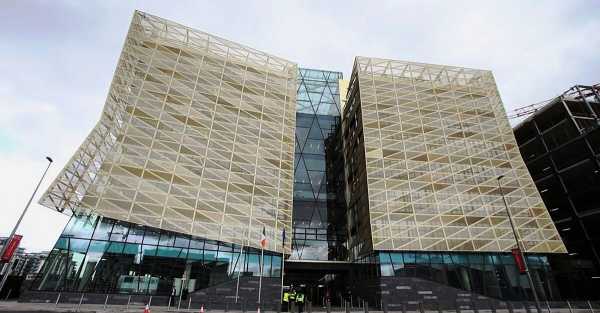
Ireland’s central bank forecasts that domestic economic growth would slow to around 2 percent this year and next if the United States imposes a 20 percent tariff on European Union exports, and could fall further if the trade war deepens.
The country has been among the countries most affected by US President Donald Trump’s sweeping economic policies, with much of its employment, tax revenue and exports dependent on a group of mostly technology and pharmaceutical multinationals.
The central bank also revised its forecasts for the completion of new housing construction in the coming years.
The number of completed projects is expected to rise to 32,500, 37,500 and 41,500 in 2025, 2026 and 2027, respectively, but this represents a decline from previous forecasts released in March.
According to the bank, the reduction in forecasts is due to a decrease in the volume of completions and starts of construction in the first quarter of this year.
The central bank lowered its estimate for modified domestic demand (MDD) for 2025 – its main measure of economic activity – to 2 percent from 2.7 percent estimated in March, while its forecast for 2026 was cut to 2.1 percent from 2.5 percent due to uncertainty affecting investment.
That is broadly in line with recent Treasury forecasts. As an EU member state, Ireland faces tariffs of 10 percent on about a quarter of its exports, which could rise to 20 percent when the 90-day US pause ends on July 8.
The central bank forecasts the MDD would fall to 0.8% this year and 1% in 2026 in a worst-case scenario where the 20% tariff applies to all goods, including key sectors for Ireland such as pharmaceuticals and semiconductors, and if the EU imposes retaliatory duties.
The Republic’s rapidly growing corporate tax revenues, which have increased nearly sevenfold over the past decade, could become a significant vulnerability in this scenario, since a significant portion of the tax comes from American multinationals.

Minister says plan to build 41,000 homes in Ireland ‘unrealistic’… Read more
The central bank said the expected large budget surplus could turn into a deficit of 4 percent of national income, or 17.7 billion euros, by 2030 if the adverse economic scenario is accompanied by the loss of recent corporate tax windfalls and a 20 percent drop in foreign multinational investment.
“It’s a serious but not extreme scenario where investment leaves the country,” the central bank’s chief economic officer, Robert Kelly, said on Thursday.
The bank also estimates that gross domestic product (which officials ignore because multinationals distort data) will increase eightfold this year to 9.7%, thanks to a sharp rise in exports.
Sourse: breakingnews.ie